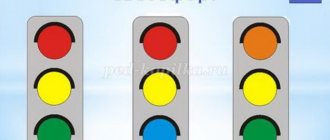Middle group. Junior preschool age. Children 4 - 5 years old
Minutes of the parent meeting of the middle group MINUTES No. 3 . Meeting of the parent meeting of secondary group No. 7 on the topic: “Health-saving technologies in Dow” Meeting : 1. Speech by the teacher of the secondary group I.V. “The health of our children is in our hands”
. 2. Speech by teacher-psychologist V.A. 3.Rules...
Minutes of the parent meeting of the middle group “We have become a year older” Agenda: 1. Summing up the educational work for the school year. 2. Familiarization with the work plan for the summer period. 3. Recommendations for organizing children's holidays in the family during the summer. On question I we heard: the teacher’s full name, who in her report on...
Preview:
Municipal preschool educational budgetary institution
kindergarten No. 38
Municipal formation Korenovsky district
parent meetings in middle group "A"
for 2016 - 2022 academic year
Municipal preschool educational budgetary institution
kindergarten No. 38
Municipal formation Korenovsky district
parent meeting of secondary group No. 6 “Brusnichka” dated September 7, 2016.
Chairman: Sidorova K.V. - parent
Secretary: Manyuk E.A. - parent
There were 14 people present, the list is attached.
Topic: “Features of the educational process in the middle group”
1. Slideshow: “How we spent the summer.”
2. Preparation of information sheets: memos “Age characteristics of children in the fifth year of life”, schedule of activities, daily routine, rules for parents.
3. Development of a draft decision of the parent meeting.
I. Consultation on the topic: “Features of the educational process in the middle group.” Speaker: Ovdienko L.A.
II. Prevention of ARVI and influenza vaccination. Speech by teacher Ovdienko L.A.
III. Selection of the parent committee.
IV. The slide show “How We Spent the Summer” was prepared by L.A. Ovdienko.
I. On the first question: the teacher of the middle group Ovdienko L.A. spoke. She drew the attention of parents to the fact that the age from four to five years is a period of relative calm. The child came out of the crisis and generally became calmer, more obedient, and more flexible. The need for friends becomes more and more powerful, and interest in the world around us increases sharply.
She brought to the attention of parents that at this age the child actively manifests:
• Striving for independence. It is important for a child to do a lot on his own; he is now more able to take care of himself and needs less adult care. The other side of independence is a statement of one’s rights, needs, attempts to establish one’s own rules in the world around one.
• Ethical ideas. The child expands the palette of conscious emotions, he begins to understand the feelings of other people and empathize. At this age, basic ethical concepts begin to form, perceived by the child not through what adults tell him, but based on how they act.
• Creative skills. The development of imagination is entering a very active phase. A child lives in a world of fairy tales and fantasies; he is able to create entire worlds on paper or in his head. In dreams and various fantasies, the child gets the opportunity to become the main character, to achieve the recognition he lacks.
• Fears as a consequence of developed imagination. The child feels insufficiently protected in front of the big world. He uses his magical thinking to gain a sense of security. But the uncontrollability of fantasies can give rise to a wide variety of fears.
• Relationships with peers. The child develops a great interest in peers, and he increasingly moves from intrafamily relationships to broader relationships with the world. The joint game becomes more complex, it has a variety of plot and role-playing content (games to the hospital, to the store, to the war, acting out favorite fairy tales). Children are friends, quarrel, make peace, get offended, are jealous, and help each other. Communication with peers occupies an increasingly important place in a child’s life, and the need for recognition and respect from peers becomes more and more pronounced.
• Active curiosity, which causes children to constantly ask questions about everything they see. They are ready to talk all the time, discuss various issues. But their volition is not yet sufficiently developed, that is, the ability to engage in something that is not interesting to them, and therefore their cognitive interest is best quenched in an exciting conversation or an entertaining game.
Parents need to know what a child between the ages of 4 and 5 should be able to do and know.
Kidanova Alla Nikolaevna asked the question “What are the most favorable conditions for the development of a child aged 4 to 5 years?”
Take into account the information from the speech of the secondary group teacher L.A. Ovdienko and her recommendations.
Place information about the age characteristics of children in the fifth year of life in the parent's corner.
If necessary, seek help from a teacher.
II. Teacher L.A. Ovdienko spoke on the second issue. with the message “Prevention of acute respiratory viral infections and influenza vaccination.” Lyubov Alekseevna told her parents that it was during this period that children’s immunity was most weakened and needed the most protection. She brought to their attention information about all the preventive measures carried out in the kindergarten, as well as the need to continue them at home. The teacher noted that health activities are carried out under the supervision of the kindergarten’s medical staff. Lyubov Alekseevna spoke about the need for the “Grippol +” vaccination, about its protection of the child’s body in the autumn-winter period, and also named contraindications under which it should not be done. Next, Lyubov Alekseevna answered the parents' questions. They were concerned about issues of nutrition and hardening, the dependence of the duration of the walk on the air temperature, clothing in the group and during the walk, etc.
How to hold a meeting in kindergarten
Parent meetings are held throughout the kindergarten and only in a separate group. In addition, depending on the issues raised at the meeting, the following can be distinguished:
- current;
- thematic;
- organizational;
- final.
Any type of meeting will require the organizers to prepare, search for approaches to parents, because it is necessary not only to share some information with them, but also to reach them, to try to “mobilize” them for some specific actions, for example, in analyzing behavior or raising a child. Sometimes it is even difficult to ensure the attendance of parents.
The presence of parents is mandatory when considering the following issues:
- reporting information about the educational process and results;
- innovations in the field of preschool education;
- conflict resolution;
- if cooperation with parents is mandatory, then making decisions on all functional changes in the work of the preschool educational institution.
At the end of the meeting, the minutes of the parent meeting in the kindergarten are drawn up and signed.


